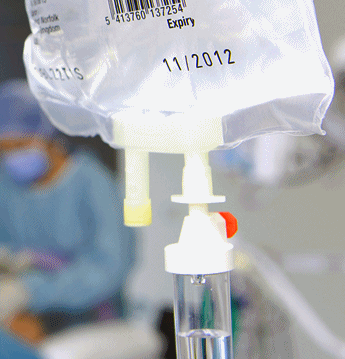PVC replacements, particularly for medical applications, will be featured by Kraton Performance Polymers (Houston, TX) at NPE2012 (April 1-5; Orlando, FL).Sales of its styrenic block copolymers or "SBCs" as a replacement for PVC in intravenous (IV) bags were up 91% last year.
March 13, 2012
PVC replacements, particularly for medical applications, will be featured by Kraton Performance Polymers (Houston, TX) at NPE2012 (April 1-5; Orlando, FL).
Sales of its styrenic block copolymers or "SBCs" as a replacement for PVC in intravenous (IV) bags were up 91% last year.
|
In a presentation Dec. 6, 2011 at the Bank of America Merrill Lynch 2011 Industrials Conference in New York, a Kraton official said: "Phthalate plasticizers are used to make PVC soft but they can leach from finished products and create health concerns. Kraton also said that PVC has "limited recyclability" and is "unsafe when burned or incinerated improperly."
Those views are also increasingly embraced by healthcare organizations, such as Kaiser Permanente, which earlier this year announced it will no longer use PVC for IV tubing or bags. Kaiser Permanente did not disclose the types of materials being used as replacements.
Kraton says its PVC-replacement material imparts softness, toughness and clarity, and is "environmentally friendly - 100% recyclable" and "plasticizer and chlorine free".
The specific material that Kraton is showcasing at NPE2012 (in booth 39000) as a PVC replacement is Kraton G Enhanced Rubber Segment (ERS) polymers. The ERS series is described as a technology breakthrough by Kraton because it "features unique softer rubber segment and precision tailored polymer structures. It also has improved compatibility with polypropylene. Clarity is cited as a specific improvement. The material also has a broad range of melt flows.
Syrenic elastomers generally are 40% to 50% more expensive than PVC, but Kraton said in its presentation that Kraton SBC represents less than 5% of the final product cost in IV bags. Polypropylene typically is only 15% to 20% more expensive than PVC. Kraton did not indicate the amount of SBC used to soften polypropylene.
The company reports on its Web site that it will soon have new blown film grades available for medical applications.
Kraton polymers are used as alternatives to PVC in the following medical applications:
Bags - Sterile and Non Sterile,
Bedding Products,
Compression Devices,
Diagnostic Equipment,
Gloves,
Intravenous Products,
Medical Film,
Patient ID Bracelets,
Plastic Wrap,
Respiratory Therapy Products,
Shower Curtains, and
Tubing.
Kraton will also show new elastomers that replace PVC in wire and coating applications at NPE2012. New higher flow SBCs are also replacing polyurethane and PVC-coated fabrics used in durable upholstery applications. Another PVC target is automotive interior slush molded soft skins. "Our slush molding manufacturing process is a PVC alternative that provides the automotive industry with a major technology and performance leap to address performance, system cost and environmental responsibility necessary to move forward and succeed," the company said in a press release.
Kraton says that adoption and penetration of SBCs into new applications and end-markets is leading to growth about double that for global gross domestic product.
"Kraton offers the most diverse and robust product profile in the SBC world," said Michael Oberkirch, vice president, Advanced Materials in the company's pre-NPE press release. "Our products compete against a variety of material alternatives including, but not limited to, TPV, TPU, PVC, TPO, PET, PC, PA, natural rubber, and EPDM-based offerings. Kraton polymers are highly-engineered and deliver recognized value by providing safe and viable alternatives to less efficient or less environmentally-friendly solutions."
You May Also Like



